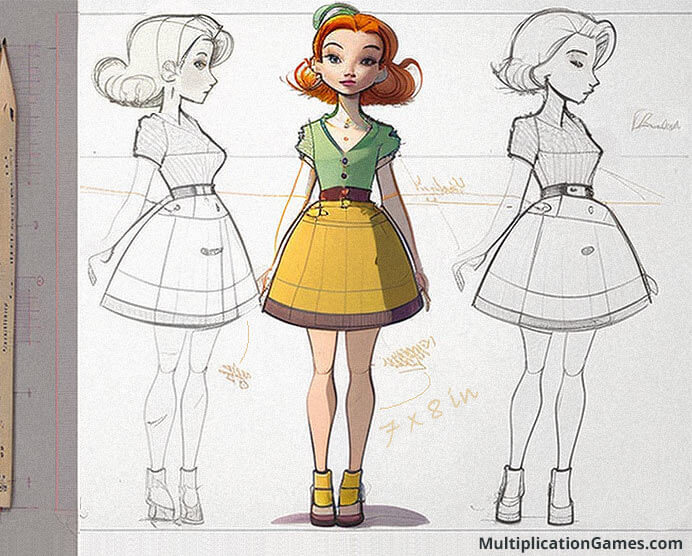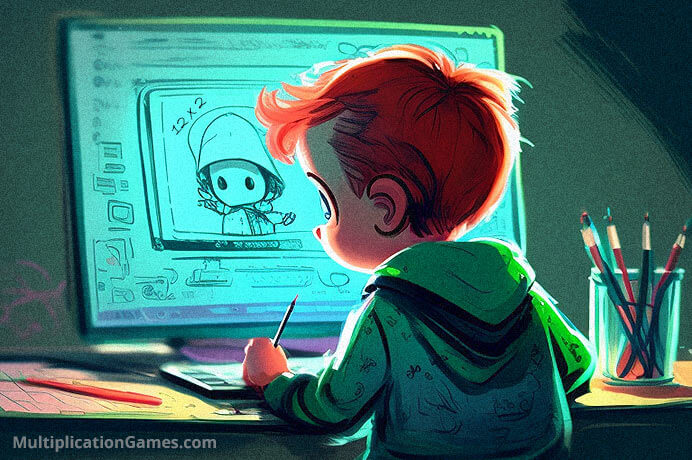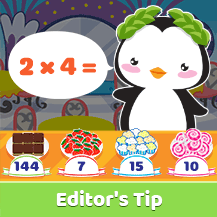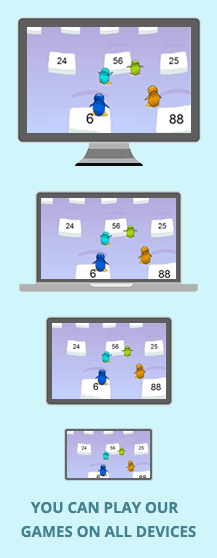Beyond the Classroom: 8 Unexpected Professions That Use Mathematics
By Megan - 03/17/2023
For many students, mathematics can be a boring subject, especially for those who tend to be more creative and imaginative. Often, the emphasis on formulas and equations can make math feel dry and uninspiring, leading many creative children to stray away from the subject.
However, the reality is that mathematics is essential in a variety of exciting professions, and when combined with creativity, it can lead to truly innovative solutions. By exploring these unexpected professions, parents can help their children develop a newfound appreciation for math and inspire them to pursue careers that use math in creative and exciting ways.
In this article, we will explore eight surprising professions that require both math and creativity. We will also offer tips about how parents can encourage their children to get enthusiastic about math! Keep reading to learn everything you need to know.
1. Musicians
Musicians use math to create rhythm, harmony, and melody. They use mathematical concepts such as fractions, ratios, and frequencies to compose and perform music. From classical to contemporary music, math plays an apparent role in the musical world.
Parents can help their children understand the connection between music and math by encouraging them to learn a musical instrument or attend music concerts. Children can also learn about music theory, including the mathematical concepts used in music composition. If you have a music lover in your household, just remind them that doing their math homework could actually pay off in the long run!
2. Athletes
Athletes rely on mathematical concepts such as statistics, angles, and distances to improve their performance and achieve their goals. From basketball to soccer, math plays a critical role in the world of sports, allowing athletes to calculate scores, analyze their data, and make strategic decisions.
Parents can help their children understand the connection between sports and math by participating in sports activities that involve tracking statistics and analyzing performance data. By exploring sports analytics, children can learn about the use of math to improve athletic performance, develop analytical skills, and gain a deeper appreciation for the importance of math in everyday life.
3. Fashion Designers

Fashion designers use math, including geometry, symmetry, and proportion, to create visually stunning and well-fitting clothing. From haute couture to streetwear, math is engrained in the very fabric of the fashion world.
If you want to help your child understand the connection between fashion and math, consider participating in fashion design activities that involve creating patterns and designing garments. Additionally, children can explore the use of math-based algorithms and technology in fashion design to create custom-fitted clothing!
4. Chefs
Mathematics is an essential tool for chefs to create delicious and visually appealing dishes. Chefs use mathematical concepts such as ratios, fractions, and percentages to scale recipes and measure ingredients accurately. From baking to cooking, math plays a pivotal role in the culinary world, ensuring that the perfect balance of flavors and textures is achieved.
Parents can help their children understand the connection between cooking and math by engaging them in cooking activities that involve measuring ingredients and scaling recipes. Children can also learn about the chemistry of cooking, including the use of math to understand how ingredients interact with each other and how temperature and time affect the cooking process. By exploring the relationship between cooking and math, children can develop their math skills while discovering the joy of creating delicious meals!
5. Magicians
Magicians are known for their captivating performances that leave audiences spellbound. However, what many people may not realize is that magicians use math to create mind-bending illusions and tricks. Mathematical concepts such as probability, geometry, and algebra are essential tools for magicians to create illusions that defy logic and captivate audiences.
Parents can help their children understand the connection between math and magic by encouraging them to participate in magic tricks and illusions. Children can learn about the math behind magic tricks, such as calculating probabilities and angles to create optical illusions.
Additionally, they can explore the history of magic and the use of math in magic performances throughout the ages. By understanding the connection between math and magic, children can develop their critical thinking skills while experiencing the wonder and excitement of magic.
6. Video Game Developers

Video game developers are the masterminds behind the virtual worlds we love exploring and conquering. However, what many people don't know is that game developers use math to create the intricate gameplay mechanics that make games engaging and challenging. Mathematical concepts such as geometry, calculus, and probability are essential tools for game developers to design game mechanics, simulate virtual worlds, and balance gameplay.
If you want to highlight the relationship between gaming and math, encourage children to participate in game development activities; this may involve designing game mechanics and creating simple games.
Children can also learn about the use of artificial intelligence and machine learning in game development. They can also learn how math is used to create realistic and intelligent non-player characters. By exploring the world of game development, children can develop their math skills while discovering the creative and exciting world of video games.
7. Architects
Architects are responsible for designing and constructing buildings that shape the world around us. However, what many people don't know is that architects use math to create structures that are not only aesthetically pleasing but also structurally sound.
Mathematical concepts such as geometry, trigonometry, and calculus are essential tools for architects to design buildings that can withstand the forces of nature and human use. Parents can help their children understand the connection between architecture and math by participating in architecture activities that involve designing structures and building models.
Children can learn about the history of architecture and the use of technology in architectural design, including the use of math-based computer-aided design software. Additionally, they can explore the relationship between architecture and other fields, such as engineering and sustainability.
By understanding the math behind architecture, children can develop their critical thinking and problem-solving skills while appreciating the beauty and complexity of the built environment.
8. Cryptographers
Cryptographers are the guardians of our secrets, using math to create and decipher codes and ciphers that keep our sensitive information secure. From ancient times to the modern day, math has played a pivotal role in the world of cryptography. Mathematical concepts such as number theory, probability, and algebra are essential tools for cryptographers to protect sensitive information.
Parents can help their children understand the connection between cryptography and math by participating in cryptography activities that involve creating and breaking codes and ciphers. Children can learn about the history of cryptography and the use of encryption in modern communication, including the role of math in securing online transactions and communications.
They can also explore the ethical implications of cryptography, including the balance between privacy and security. By understanding the relationship between math and cryptography, children can develop their analytical skills while appreciating the importance of protecting sensitive information.
The Takeaway
As children grow up, they often have big dreams about what they want to be when they are older. While they might think math is only for scientists or doctors, the truth is that math is all around us, and it plays a vital role in many exciting and creative careers. By reminding your children that some of the most innovative and exciting jobs utilize math every day, you can help them gain a new perspective on the subject.
Encouraging your kids to play online multiplication games and other math-related activities can help them develop a passion for math and bring enthusiasm to the classroom. By making math fun and relevant, parents can help their children develop the skills they need to succeed in any career they choose. Whether they become video game designers, magicians, or architects, math will play an essential role in their journey.






